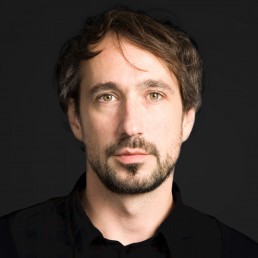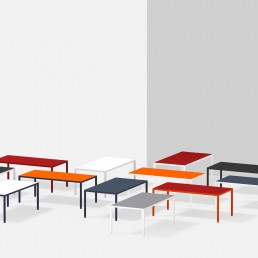
Knowledge vs. Restriction
Does the Future of Design Education Lie in the Universities of Today?
By Fons Hickmann, April 2017, Berlin
If the universities of today no longer live up to their full potential, then we must recreate our concept of a “university” elsewhere. Doing so would represent a long-term approach. A shorter-term approach would involve calling for universities to refocus on their strengths and return to do what they do best.
What is the key strength of a university? This question does not refer to “strength” in the physical sense, nor even in an institutional sense. Perhaps the strength of a university lies in its core weakness: vulnerability. After all, the university is constantly in danger of being taken over or (mis)appropriated and has, for generations, had to guard itself against the intrigues of would-be usurpers. But who covets the university, other than those who learn and teach within its facilities? Attempts to occupy the university are motivated by ideology or economics. The university is a key driver of knowledge, and it is a common misconception that this driver of knowledge can be utilized to an end other than that of generating more knowledge. This misconception is rooted in the idea that the university can be used for political or economic ends: This is a way of looking at the university as an ideological arm, or as a subsidiary of a commercial enterprise. If either of these were actually the case, the state of knowledge would be imperiled by its allegiance to these forces, and would be prevented from advancing. The university can only prosper if it is independent, free from any form of influence, and if it does what it is intended to do: discover new things. The strength of the university is also its weakness: freedom! Teaching necessitates a freedom that is unconditional, unrestricted, and free of any ties. The learning process calls on students to strive towards expanding their knowledge without restrictions and without fear. Forward-looking teaching analyzes, deliberates, and invents. Curiosity is the impetus behind all research.
That which makes the young researcher or the young designer curious is that which he does not yet know, what is yet to be discovered. In keeping with this, freedom also means acting without having specific expectations as to the end result. The university is not meant to redo and revise that which has already been done; instead, it is meant to discover and forge “the new.”
Although the university of the future will lay a tradition- al claim to freedom, it may look very different from the university that we know today. Far too often, we confine ourselves within clearly mapped territories of knowledge. Marking out faculties and disciplines only leads to restriction. The freedom of the university also implies the development of entirely new subject areas and the combination of classic disciplines. It is an unhappy twist of fate that we (still) distinguish between the natural sciences, the humanities, and the arts. Moreover, within the arts themselves we go on to differentiate between fine art and applied art, and within these fields we create yet more distinctions. It is absurd to distinguish between analog and digital in the field of design — as if a future might exist in which it would be necessary to separate the two! I propose taking an alternative approach: Let us break down the existing barriers between disciplines and reinvent them — especially in the field of design! There can be no product design without taking environmentally friendly manufacturing into account, for instance. If you want to develop sustainable products that are not harmful to the environment, you need to know about chemical process- es. Furthermore, there definitely cannot be information design without a sense of ethical responsibility; compiling and presenting information in the news, on online platforms, through social media, via classic newspaper journalism, or in books requires an awareness of historical and political processes.
Universities reflect the society in which they exist
How wonderful would it be if that were reversed, and society mirrored the creative intelligence found within its universities! The achievements of the Humboldt brothers were crucial to defining the spirit of the university in Berlin and for the university’s development. Their influence on education and training has been tremendous, and the impact of their ideal of “universal scholarship” should still not be underestimated today. As discussed, the strength of the university is also its Achilles heel, and the university needs to draw upon strong powers of resistance in order to evade dogmatic and political interference. One of the greatest tragedies with which we have had to struggle in education policy is the Bologna Process and the reduction of higher education to a Bachelor’s/Master’s system. Even though there are hardly any serious advocates for the Bologna Process, and even though some politicians have already woken up to the absurdity of what has been done, it is, nevertheless, a reality. This is a disastrous development, forcing universities into reforms driven by shortsighted economic consider- ations — as if knowledge were not the true economic value here. However, we have to live with this change and find a way to either approach this development in a constructive manner or to start again from the ground up. Humboldt and Humboldt had their sights on an El Dorado of knowledge. We just haven’t made it there (yet).

For Germany, the general aim remains unchanged, in keeping with the nation’s federalist spirit: Help the general populace to advance, not just the few at the top. This humanist way of thinking is perfectly in line with the idea that no person should be left behind, and that access to education should not be limited to the intellectually gifted. This is, of course, a laudable attitude, and might also represent a successful approach if quality were favored over quantity.
In today’s world, we each know a little bit about everything — but not enough of anything. We might be able to boast that virtually everyone is at least averagely informed. However, we shouldn’t focus on merely attaining a baseline level of education; we should also encourage the gifted to reach their full potential. Instead of quantity, we should be focusing on quality. Giving in to promoting mediocrity will not lead to success. The top is a dangerous place, of course: It is tough and demanding. But the top is where our focus must remain, unless we want our top students and teachers to leave our country. All that being said, the outlook is promising in Berlin. Here, eager young students and designers collaborate with skilled teachers and designers at the universities, where they work tirelessly together to redefine these spaces and defend them against unwelcome interference. And when all else fails, students and teachers join forces to forge new paths — even if that means conceiving of a new academia.
In fact, I am certain that is what will happen. Universities thrive on committed, cosmopolitan students who transcend boundaries and see their work as universal in reach — students who see themselves as having reached the “age of responsibility” in the Aristotelian sense, who are impressed by good teachers, and who inspire one another. Those who are hungry for knowledge learn quickly. Universities, then, act as a place of exchange, so long as they refocus on their positive qualities, encourage freedom of thought and research, promote experimentation, and seek “the new” instead of merely reciting that which is already known. Universities are not schools of craftsmanship. Although they teach the current state of knowledge, they must not become complacent and abandon efforts to expand it. After all, the search for new knowledge is where the journey of discovery begins: “The new” can only be found where we have not yet been. ■













